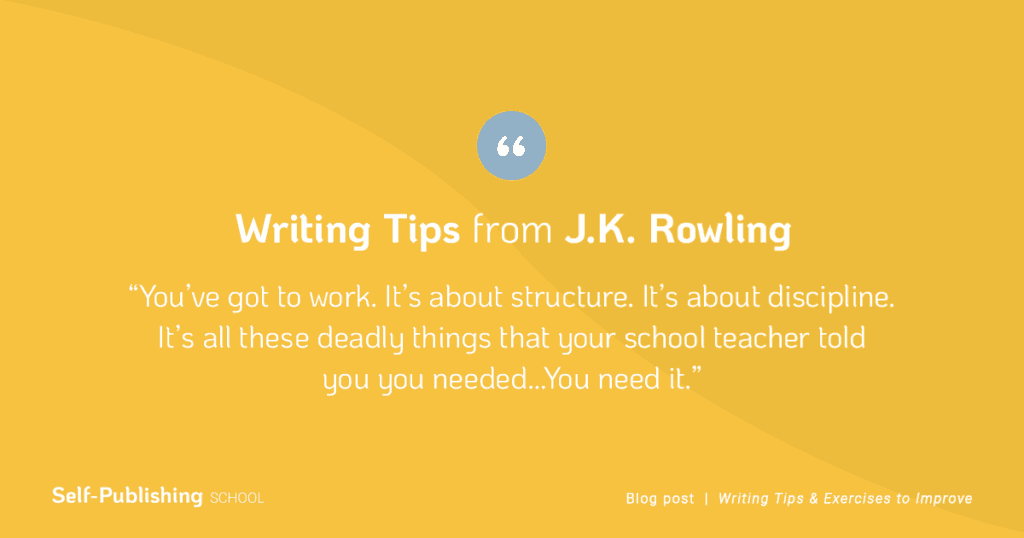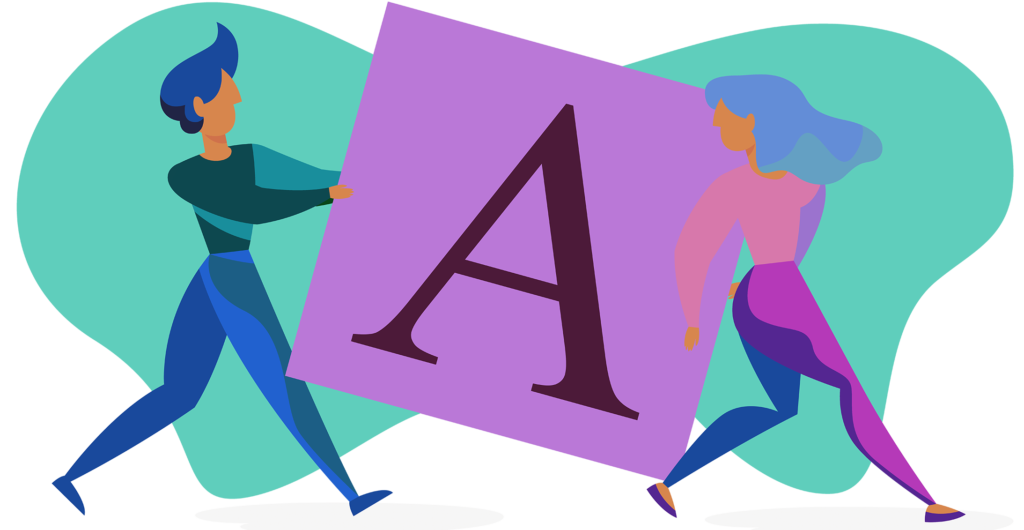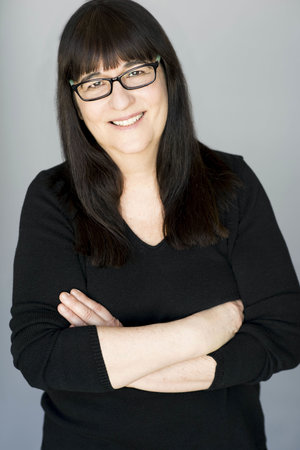
It’s one thing to improve your grammar, it’s another to work on bettering the actual writing.
Here are some mistakes to look for in your writing to utilizing this writing tip:
Is this a bad way to describe a sunset and night beginning? No. However, you can easily get more creative about how to illustrate this to readers through words.
This will always be the hardest, but most important part of improving your writing. Of all the writing tips to take and execute, this is the best one.
How to Improve Writing with Tips for Writing a Book

- The Self-Publishing School Youtube Channel
- Our Podcast, where we highlight success stories and learn how authors made it happen
- Jenna Moreci’s Youtube channel featuring the best fiction and self-publishing writing tips
- DailyWritingTips.com, a blog featuring unique and specific tips for writing
- Hannah Lee Kidder’s Youtube channel including tips from a multi-published fiction author
- This Stephen King video featuring his own tips
- Brandon Sanderson’s lectures from a college classroom
- Chandler Bolt’s personal Youtube channel for productivity advice and more
- JustPublishingAdvice.com, a blog dedicated to sharing helpful publishing and writing tips.
“But what if I think other people will like it even if I don’t?”
In order to improve your writing skills, you have to commit to writing as much as you can, using different writing exercises, and reading often. You have to form a writing habit in order to do this.

If Laura could make it happen, then writing your book is certainly an attainable dream.
By this point, your book is completed—congratulations! You’ve done something that most people will never do.
Take it from me—it’s worth your time to complete these steps. They will make the rest of your book-writing experience much, much easier and more satisfying.
Here are a few examples from some of my own books:
In order to realize your end goal, you need actionable steps to follow.

As your launch team grows bigger, you might need to offer more than that. For example, maybe another person in your niche agrees to promote your new book to their email list—but in exchange, they want a percentage of your profit.
Writing a book is hard without the right help. Without someone who’s done it before, you can end up making crucial mistakes.
When there’s nothing standing in your way, it’s sadly typical to start letting excuses for not writing your book become the obstacle to your success.

You wouldn’t set out to cut down a huge grove of trees with just an axe. You’d need a chain saw, perhaps more than one. Something to keep them sharp. Enough fuel to keep them running.
Try to imagine everything you’re going to need in addition to your desk or table, so you can equip yourself in advance and don’t have to keep interrupting your work to find things like:
You’re going to be tempted to give up writing your book when you run out of ideas, when your own message bores you, when you get distracted, or when you become overwhelmed by the sheer scope of the task.
- Staplers
- Paper clips
- Rulers
- Pencil holders
- Pencil sharpeners
- Note pads
- Printing paper
- Paperweight
- Tape dispensers
- Cork or bulletin boards
- Clocks
- Bookends
- Reference works
- Space heaters
- Fans
- Lamps
- Beverage mugs
- Napkins
- Tissues
- You name it
- Last, but most crucial, get the best, most ergonomic chair you can afford.
How to Start Writing a Book

There’s nothing worse than trying to be creative and immerse yourself in writing while you’re in agony . The chair I work in today cost more than my first car!
So you want to write a book. Becoming an author can change your life—not to mention give you the ability to impact thousands, even millions, of people.
The key is to follow a proven, straightforward, step-by-step plan .

This is where, as Stephen King puts it, you must “kill your darlings”.
Believe it or not, you don’t have to have the entire story figured out before you can start writing a book or short story. All great novels started as a spark or a “seed” of an idea. This could be an intriguing character, an ominous or magical setting, or a romantic or funny scene. It could even be as small as a witty piece of dialogue. All these are seeds that you can water and harvest into ideas for good books.
Answering these questions will help you figure out what you can improve in the second draft.
“Get it down. Take chances. It may be bad, but it’s the only way you can do anything really good.” — William Faulkner
8. Edit and polish
Taking a break is necessary for recuperating and refueling your creative tank. It’s also necessary for giving your brain some distance from the story. After you’ve taken a few weeks away from your novel, you’ll have a fresh perspective on it. Then, you’ll be able to revise it with more objectivity and more clarity.
Many people believe that learning how to write a book requires a lot of schooling and raw talent. But that’s not true. Plenty of famous, successful writers don’t have master’s degrees in creative writing. Many new fiction writers have no prior experience in writing or publishing a book. There are only two things you need to write a book successfully: inspiration and determination.
- Keep adverb use low. Adverbs are the lazy writer’s crutches. They reduce into a single word what context should convey. “He walked quickly to the door as Lily pulled into the garage,” is not bad writing — it’s lazy. Try being more descriptive. “He rushed to the door as soon as he heard Lily’s car pull into the garage.” See how this second sentence immediately feels more urgent?
- Put every sentence on trial. This is the part of the process where you want to tighten up the writing. Trim down every section of the story that feels wordy or overwritten. You must put every word on trial. Ask yourself questions like, “Does it really deserve to be there or can the story work without it?” Cutting a sentence can help highlight the sentences around it. Be ruthless with your cuts. Leave behind only the best of sentences that serve the plot and move the story forward.
Once you have your idea “seed,” the easiest part to start growing it is with your main character. Decide who will be the primary person the reader will follow through the story. Who will introduce your reader to your world? Whose perspective will the reader see your story through? Once you decide who this is you can ask yourself more questions about this person. Here are some brainstorming questions to get you started:

So when an opportunity presents itself that might seem scary or even impossible, don’t dismiss it outright. Instead, consider what it might offer. Will it teach you a worthwhile skill, give you a chance to try something new, or require you to do something that makes you nervous? If so, it might be a good idea after all.
“There you go. Anything you thought you should have done is what you ought to do.”
3) Study the craft of writing in books, lectures, or wherever else you can learn it. You most especially need to do this after getting critiqued.
Rather than aiming at recognition, they chase understanding. They lean into the struggle, learn to marvel at the untangling of complexities and the transcendence of unforgettable stories.
29. Saundra Dalton-Smith, author, speaker, physician

Blog, share on YouTube, participate in social media, or even have an email newsletter list.
Don’t wait until you have something “important” to say. You are living now, and you’ll never be able to recapture the feeling of being 15, 22, 36…not really. The things that matter to you now, won’t matter in the same way when you’re older, and the things that matter to you when you’re older won’t necessarily be more important. You might know more, but that won’t make you more interesting or important. Write now.
The thought of being able to tell my younger self what I know now prompted me to ask 39 of the best authors, writing coaches, and publishing experts I know:
You have to stop writing sometimes to have a life that will fuel your writing. Other avocations can scratch a different creative itch and fuel your writing as well.
